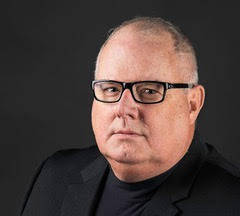No extra daylight or saving in time change
Just like clockwork, pun intended, most of us have set our clocks forward to comply with daylight saving time. The joy of springing forward and then falling back in November is as much fun to me as anticipating my next cable bill.
Am I the only one who hates resetting several clocks twice a year? Actually, I don’t change clocks anymore. Most of them are radio-controlled atomic clocks or computer-controlled devices that change automatically; the analog clocks, coffee machine, microwaves and oven clocks are on their own. Hey, they are correct most of the year.
One study claims that only 33 percent of Americans understand the purpose of daylight saving time. I understand the purpose, historically, but I do not understand the necessity.
Our allies and friends to the north, the Canadians, were the first to create a daylight saving zone. The few hundred citizens of Port Arthur (now Thunder Bay) turned their clocks forward July 1, 1908.
On the national level, Germany and Austria were the first countries to utilize daylight saving time in 1916 to minimize the cost of fuel for artificial lighting during World War I.
The United States followed suit in 1918 by instituting “fast time” and moved our clocks forward an hour. This practice lasted seven months before being discontinued.
President Franklin Delano Roosevelt instituted daylight saving time nationwide Feb. 9, 1942, to help with the war effort. Our time zones were labeled Eastern War Time, Central War Time, Mountain War Time and Pacific War Time. All time zones were relabeled Peace Time after the Japanese surrendered in mid-August 1945. All daylight saving time was discontinued Sept. 30, 1945.
Afterward, daylight saving time changes were haphazard and sometimes confusing.
There were no uniform rules for daylight saving time until the Uniform Time Act of 1966 was enacted by Congress. This law allowed states to opt out of daylight saving time, which began the last Sunday of April and ended the last Sunday in October — a six-month cycle.
Congress attempted to save energy costs by mandating daylight saving time nationwide in January 1974 because of the Arab oil embargo situation. Public outcry and paltry energy savings resulted in this law being lifted 16 months later.
Since then, daylight saving time has undergone some modifications, but today, we observe daylight saving time for 34 weeks. We should not change our clocks for a mere 18 weeks. We should stay in one time zone.
I was stationed at Fort Huachuca, Arizona, from 1985 until 1987. Arizona (with the exception of the Navajo Nation) hasn’t used daylight saving time since 1968. It was almost a reason to eventually return to Arizona when I retired from the Army. But I didn’t (yet).
One of the main arguments for daylight saving time is that it adds an extra hour of daylight during the winter, when daylight hours are fewer. It doesn’t give us any extra daylight, of course; it merely facilitates a later sunrise and sunset. However, we return to standard time more than five weeks before we experience the fewest daylight hours on the winter solstice, which falls on Dec. 21 this year.
Southern Nevada is longitudinally eastward enough to join the Mountain Time zone. We should do this and stay on daylight saving time, facilitating year-round Mountain Daylight Time, or remain on Pacific Standard Time.
Now is the time, pun intended, for change. We must write our elected officials and let them know that there isn’t any daylight or saving in daylight saving time.
Dan Jennings is a retired Army captain and a retired BCPD lieutenant. He can be reached at bcpd267@cox.net.





